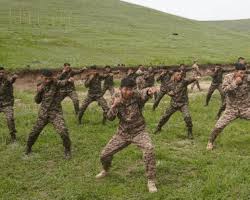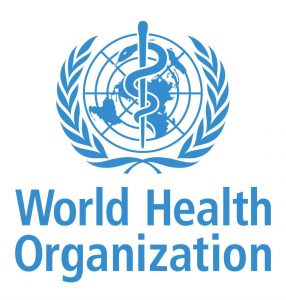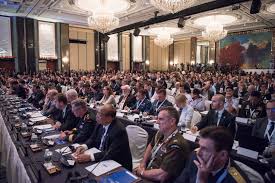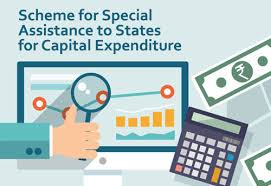Today’s Current Affairs: 30th May 2025 for UPSC IAS exams, State PSC exams, SSC CGL, State SSC, RRB, Railways, Banking Exam & IBPS, etc
Table of Contents
Tral Wildlife Sanctuary:

The Central Government has officially designated an Eco-Sensitive Zone (ESZ) around the Tral Wildlife Sanctuary.
- Tral Wildlife Sanctuary is located in the Pulwama District of Jammu and Kashmir.
- It forms an important corridor for the movement of
- It is among the few areas outside Dachigam National Park where a population of this critically endangered Hangul deer still survives.
- The vegetation of the Sanctuary is typically Himalayan moist temperate forest, sub-alpine forest, and alpine forest types.
- The area harbours Halgul population. Besides, 15 species of mammals, including some rare ones, are also found in the limits of the sanctuary. It is also home to more than 200 species of birds.
- It functions as a protected wildlife corridor for the endangered Kashmir Stag, also called Hangul.\
- It is home to various endemic species like Kashmir Red Deer (Cervus hanglu hanglu), Kashmir Musk Deer (Moschus cupreus) and Kashmir Gray Langur.
Yashoda AI: Your AI SAKHI

The‘Yashoda AI: Your AI SAKHI’ to advance women’s AI literacy and digital awareness was held at the Mahatma Jyotiba Phule Rohilkhand University, Bareilly.
- It is the initiative of the National Commission for Women (NCW) in collaboration with Future Shift Labs (FSL).
- It will empower women to contribute meaningfully to a Viksit Bharat driven by technology and inclusion.
- The Yashoda AI Abhiyan wants to stand as India’s effort to empower women, especially from rural and semi-urban communities, with essential skills in Artificial Intelligence, Cybersecurity, and Digital Safety.
- The program aims to go beyond traditional learning by hosting in-depth discussions on critical issues such as AI-driven crimes, digital privacy, and practical safety strategies.
- It will actively engaging students, educators, and women from the police force, Yashoda AI Abhiyan wants to experiment in community-driven digital education, ensuring that women are not only participants but leaders in shaping India’s tech-savvy future.
- National Commission for Women is an autonomous and statutory body established in 1992 under the National Commission for Women Act, 1990, to protect and promote women’s rights in India.
- The Commission shall consist of a Chairperson, 5 Members, and a Member-Secretary who are nominated by the Central Government.
- The Chairperson and every Member shall hold office for a period of three years.
‘Know Your DIGIPIN’ and ‘Know Your PIN Code:

The Department of Posts, Ministry of Communications launched two transformative digital platforms: ‘Know Your DIGIPIN’ and ‘Know Your PIN Code’.
- The DIGIPIN (Digital Postal Index Number) is an open-source, interoperable, geo-coded, grid-based digital address system developed by the Department of Posts in collaboration with IIT Hyderabad and NRSC, ISRO.
- Vision: To offer Address-as-a-Service (AaaS) — an array of services associated with address data management to support secure and efficient interactions between users, government entities, and private sector organisations.
- The ‘Know Your DIGIPIN’ portal enables users to:
- Retrieve their DIGIPIN based on precise geolocation.
- Input latitude and longitude coordinates to fetch corresponding DIGIPINs and vice versa.
- This initiative simplifies location mapping, enhances logistics and emergency response, and ensures last-mile delivery, especially in rural and underserved areas.
- Incorporating DIGIPIN as an additional address attribute enables the leveraging of GIS capabilities, laying the foundation for future GIS-based digitalisation of service delivery across various organisations in a cost-effective manner.
- DIGIPIN will enhance location accuracy across multiple sectors by providing precise geographic coordinates, ensuring accurate service delivery and reducing emergency response times.
- A complete repository of the DIGIPIN technical documentation and source code has been made available on GitHub, promoting open collaboration and nationwide adoption.
- It is now available to all Ministries, State Governments, institutions for integration into their workflows, and users for their own use.
- Know Your PIN Code Web Application : It is the six-digit PIN Code system, introduced in 1972. The Department undertook a national geofencing exerciseacross all postal jurisdictions to geo-reference all the pin code boundaries of the country.
Kalanamak Rice:

The Uttar Pradesh government, in consultation with the Commerce Ministry, plans to promote the export of Kalanamak rice to countries with majority or large Buddhist populations.Kalanamak is a traditional variety of paddy with black husk and strong fragrance.
- It is considered a gift from Lord Buddha to the people of Sravasti when he visited the region after enlightenment.
- It is traditional, non-basmati aromatic rice grown in eastern Uttar Pradesh, particularly in Siddharthnagar, where it has been designated as an ODOP (one district one product) item.
- It is also grown in 11 districts of the Terai region of north-eastern Uttar Pradesh and in Nepal, the traditional variety has been prone to ‘lodging’, a reason for its low yield.
- Lodging is a condition in which the top of the plant becomes heavy because of grain formation, the stem becomes weak, and the plant falls on the ground.
- It is a nutritional powerhouse. It is rich in iron and antioxidants, has a low glycemic index, and is naturally gluten-free, making it a healthy dietary choice, especially for diabetics.
- It is protected under the Geographical Indication (GI) tag system.
Open Interest in the Stock Market:

SEBI recently announced a sweeping overhaul of its equity F&O framework, introducing a new Future Equivalent (FutEq) method to assess open interest more accurately.
- Open Interest is a term commonly used in Futures and Options (F&O) trading, where the number of open contracts changes on a daily basis.
- Every trade has two sides: a buyer and a seller. Whenever an F&O contract is traded, it is considered open until one of the parties closes their position through offsetting.
- Open Interest is the total number of active options and futures contracts that have not yet been settled against an asset at a given time in the trading arena.
- It is primarily used as an indicator to identify market positions of securities that have not yet been closed for an unknown reason.
- To summarise, it is referred to as a measure of liquidity in conjunction with market activity.
- Like any other security traded in the market, it is subject to market changes.
- When new contracts are created or opened, it rises. A rise in the number of them indicates that there are more buyers and sellers for a specific security.
- It decreases when positions in existing contracts are closed out by buyers (or holders) and sellers.
- Investors might make conclusions about the day’s market activity by monitoring changes in the open interest at the end of each trading day.
Exercise Nomadic Elephant : 17th edition

The Indian Army contingent departed for 17th edition of India- Mongolia Joint Military Exercise NOMADIC ELEPHANT which is scheduled to be conducted in Ulaanbaatar, Mongolia
- Exercise Nomadic Elephant is an annual joint military exercise conducted alternatively in India and Mongolia.
- Last edition of the same exercise was conducted at Umroi, Meghalaya in July 2024.
- The Indian contingent comprising 45 personnel will be represented mainly by troops from a battalion of the Arunachal S
- Aim of the exercise is to enhance interoperability between the two forces while employing a joint task force in semi conventional operations in semi urban/ mountainous terrain under United Nations mandate.
- The scope of this exercise involves Platoon level Field Training Exercise. During the exercise, Indian and Mongolian troops will engage in various training activities.
- In addition, to enhance complexity of exercise, aspects pertaining to Cyber Warfare are also being incorporated in this edition of the exercise.
- The exercise underscores the shared commitment of India and Mongolia towards regional security, peace and stability.
- The exercise reinforces the India-Mongolia relationship as a cornerstone of regional cooperation, fostering strong military ties and promotion of cultural understanding.
- A testament to the enduring bond of friendship, trust and cultural linkages between India and Mongolia, the exercise sets the stage for meaningful professional engagement, highlighting the unwavering commitment of both nations to broader defence cooperation.
MPOWER Framework:

In other countries where higher prices have deterred smoking, prices remain low in India; tobacco affordability undermines the World Health Organization’s MPOWER framework and weakens control, hindering efforts to reduce tobacco-related cancers.
- In line with the World Health Organization (WHO) Framework Convention on Tobacco Control (WHO FCTC), WHO introduced the MPOWER measures in 2008.
- MPOWER are a set of six cost-effective and high-impact measures that help countries reduce demand for tobacco.
- These measures include:
- Monitoring tobacco use and prevention policies.
- Protecting people from tobacco smoke.
- Offering help to quit tobacco use.
- Warning about the dangers of tobacco.
- Enforcing bans on tobacco advertising, promotion, and sponsorship.
- Raising taxes on tobacco.
- The MPOWER measures have played a significant role in encouraging smokers to consider the most effective way to quit smoking.
- Each letter in MPOWER stands for a measure intended to assist governments in achieving the FCTC’s objectives.
- WHO Framework Convention on Tobacco Control (WHO FCTC) is an evidence-based treaty that reaffirms the right of all people to the highest standard of health.
International Emergency Economic Powers Act (IEEPA), 1977:

A U.S. federal court recently blocked President Donald Trump’s broad tariffs, ruling that the International Emergency Economic Powers Act (IEEPA) doesn’t give him authority to impose sweeping import taxes.
- International Emergency Economic Powers Act of 1977 (IEEPA) is a United States Act which was legislated on 28 October 1977.
- It gives the president broad powers to regulate various financial transactions upon declaring a national emergency.
- The IEEPA empowers the US President to proclaim an unusual and exceptional threat to the federal security, foreign policy, and economy of the United States that originates in whole or in considerable part outside the United States.
- It also empowers the President to restrict transactions and freeze assets in response to such a statement.
- In the case of an actual attack on the United States, the president has the authority to seize property associated with a nation, group, or individual that assisted in the attack.
- The IEEPA is governed by the terms of the National Emergencies Act (NEA), an emergency proclaimed under the Act must be renewed annually in order to stay in existence.
- IEEPA is a treaty that extends executive power over crises during times of peace.
- The IEEPA empowers the president to respond to uncommon and extraordinary risks to national security by altering the United States’ economic policy.
- The IEEPA serves as the governing authority for much of the US sanctions regime.
- The US Congress initially passed IEEPA in an attempt to restrict the emergency economic powers granted to the president under the Trading with the Enemy Act, a 1917 law that gave the president expansive authority to regulate international transactions during wartime.
- President Richard M. Nixon used the precursor statute to briefly impose a 10 percent universal tariff in 1971.
- No president has previously used IEEPA to put tariffs on imported goods.
- Instead, presidents have imposed tariffs in response to national security threats using Section 232 of a 1962 trade law.
- That legal provision differs from IEEPA in part because it requires an investigation and report that has to be issued within 270 days.
- The provision also focuses on certain imports that threaten to impair U.S. national security.
Shangri-La Dialogue:

Chief of Defence Staff General Anil Chauhan will visit Singapore to attend the 22nd edition of the Shangri-La Dialogue, hosted annually by the International Institute for Strategic Studies.
- Shangri-La Dialogue is Asia’s premier defence and security summit that brings together Defence Ministers, Military Chiefs, policymakers and strategic experts across the globe.
- Since its birth in 2002, it has developed into the most influential multilateral security exchange platform in the Asia-Pacific region.
- It is held in June every year in Singapore.
- It is organized by the International Institute for Strategic Studies (IISS) in London, UK, and co-organized by Singapore’s Ministry of Defence.
- The agenda of the Shangri-La Dialogue is closely related to the security situation and development trend in the Asia-Pacific region, covering traditional and non-traditional security and other fields.
- These include traditional security issues such as territorial disputes and military cooperation, as well as non-traditional security issues such as terrorism, cybersecurity, and climate change.
- Such agenda setting enables the dialogue to fully reflect the security challenges and cooperation needs of the Asia-Pacific region.
- Around the above issues, Shangri-La Dialogue is divided into two forms: open general assembly exchanges and closed-door group meetings.
- Open exchanges at the conference allow delegates to make speeches and discuss issues of common interest, enhancing mutual understanding and trust.
- Closed-door breakout sessions are more in-depth and specific, allowing participants to discuss and negotiate on a topic in depth and seek cooperation and solutions.
Scheme for Special Assistance to States for Capital Investment:

The Centre’s 50-year interest-free capex loans under the Scheme for Special Assistance to States for Capital Investment (SASCI) are driving major land reforms across India by pushing states to modernise property systems, boosting efficiency, and industrial growth.
- The ‘Scheme for Special Assistance to States for Capital Expenditure’ was launched in 2020–21 in response to the Covid-19 pandemic.
- Later renamed as SASCI, it aims to stimulate economic recovery by providing interest-free assistance to states specifically for capital investment.
- Capital Investment Focus Provides long term interest free loans for a period of 50 years to states exclusively for capital expenditure projects.
- Capital expenditure boosts productive capacity, creates jobs, and drives sustainable growth. It has a high multiplier effect for every Rs 1 spent it is estimated to generate Rs 3 in Gross Domestic Product (GDP).
- Divided into multiple parts targeting different sectors, such as urban reforms, vehicle scrapping incentives, police housing, Make in India initiatives, digital infrastructure, Optical Fibre Cable, and tourism development.
- The scheme grew from Rs 12,000 crore in 2020-21 to Rs 1,50,000 crore in 2024-25, reflecting increased focus on capital investment.
- Under SASCI 22 states updated building bylaws for industrial and commercial plots.
World Dhole Day:
28th May is celebrated as World Dhole Day to promote the conservation of dholes—endangered Asian wild dogs—who play a crucial role as apex predators in maintaining forest ecosystem balance.Dholes (Cuon alpinus) are wild dogs native to southern and eastern Asia, including India’s Western Ghats (e.g., Valparai plateau). Dholes have auburn fur, black tails, amber eyes, and upright rounded ears, living socially in packs of 2 to 25.
Conservation Status:
IUCN: Endangered.
CITES: Appendix II.
Wildlife (Protection) Act, 1972: Schedule II.
Maternity Benefits for Third Child:
K. Umadevi v. Government of Tamil Nadu Case, 2022, the Supreme Court (SC) granted maternity benefits to a woman for her third child, under the Maternity Benefit (Amendment) Act, 2017 calling it a constitutional right.The SC affirmed that the right to health, dignity, privacy, and non-discrimination are integral to the Right to Life under Article 21 of the Constitution.It emphasized that reproductive rights form part of international human rights law, including rights to health, equality, and dignity.
Right to reproductive choices is protected under Article 21 (Right to Life and Personal Liberty), as reaffirmed in the Suchita Srivastava v. Chandigarh Administration Case, 2009. Maternity Benefit (Amendment) Act, 2017: The Maternity Benefit Act, 1961, as amended in 2017, provides paid maternity leave and related benefits to women employees both before and after childbirth.
Three-Year Judicial Practice Mandate:
The Supreme Court reinstated the rule mandating a minimum of three years of legal practice as a prerequisite for applying to the Civil Judge (Junior Division) posts.As per the latest ruling in All India Judges Association v. Union of India, a candidate must now have at least three years of courtroom experience before appearing for judicial service exams.The mandate applies to entry-level judges, reinstating the condition removed in 2002 to broaden access to judicial posts.
Japan Carbon Emissions Trading System:
Japan’s Parliament passed a law mandating large firms to participate in a carbon emissions trading system (ETS) starting April 2026.A legally binding emissions trading system (ETS) requiring large firms emitting ≥100,000 tonnes of CO₂ annually to trade carbon credits.
Honorary Rank Promotion Scheme:
The Ministry of Home Affairs has introduced a policy granting honorary rank promotions to retiring personnel of CAPFs and Assam Rifles from Constable to Sub-Inspector.The Honorary Rank Promotion Scheme is a recognition initiative by the Ministry of Home Affairs under the leadership of Union Home Minister Amit Shah. It awards a one-rank higher honorary title to retiring personnel of Central Armed Police Forces (CAPFs) and Assam Rifles, from Constable to Sub-Inspector rank.
Battery Aadhaar Initiative:
At the Battery Summit 2025, Tata Elxsi, in partnership with Tata Motors, Tata AutoComp, and IIT Kharagpur, unveiled the Battery Aadhaar initiative to key government stakeholders.The project aligns with India’s green mobility and circular economy.Battery Aadhaar is a digital identification system for batteries, designed to enable full traceability across their lifecycle using secure, blockchain-backed technologies.Developed By: Spearheaded by Tata Elxsi through its MOBIUS+ platform, in collaboration with Tata Motors, Tata AutoComp Systems, and IIT Kharagpur.
Swachh Survekshan Grameen 2025:
Union Jal Shakti Minister launched Swachh Survekshan Grameen (SSG) 2025, India’s largest rural sanitation survey.A nationwide rural sanitation ranking survey covering 21,000 villages across 761 districts in 34 States/UTs. Anchored under Swachh Bharat Mission (Gramin) Phase-II to assess the sustainability of ODF Plus outcomes. Conducted by the Department of Drinking Water and Sanitation (DDWS) under the Ministry of Jal Shakti. An independent agency is engaged for field verification, ensuring data authenticity and transparency.




